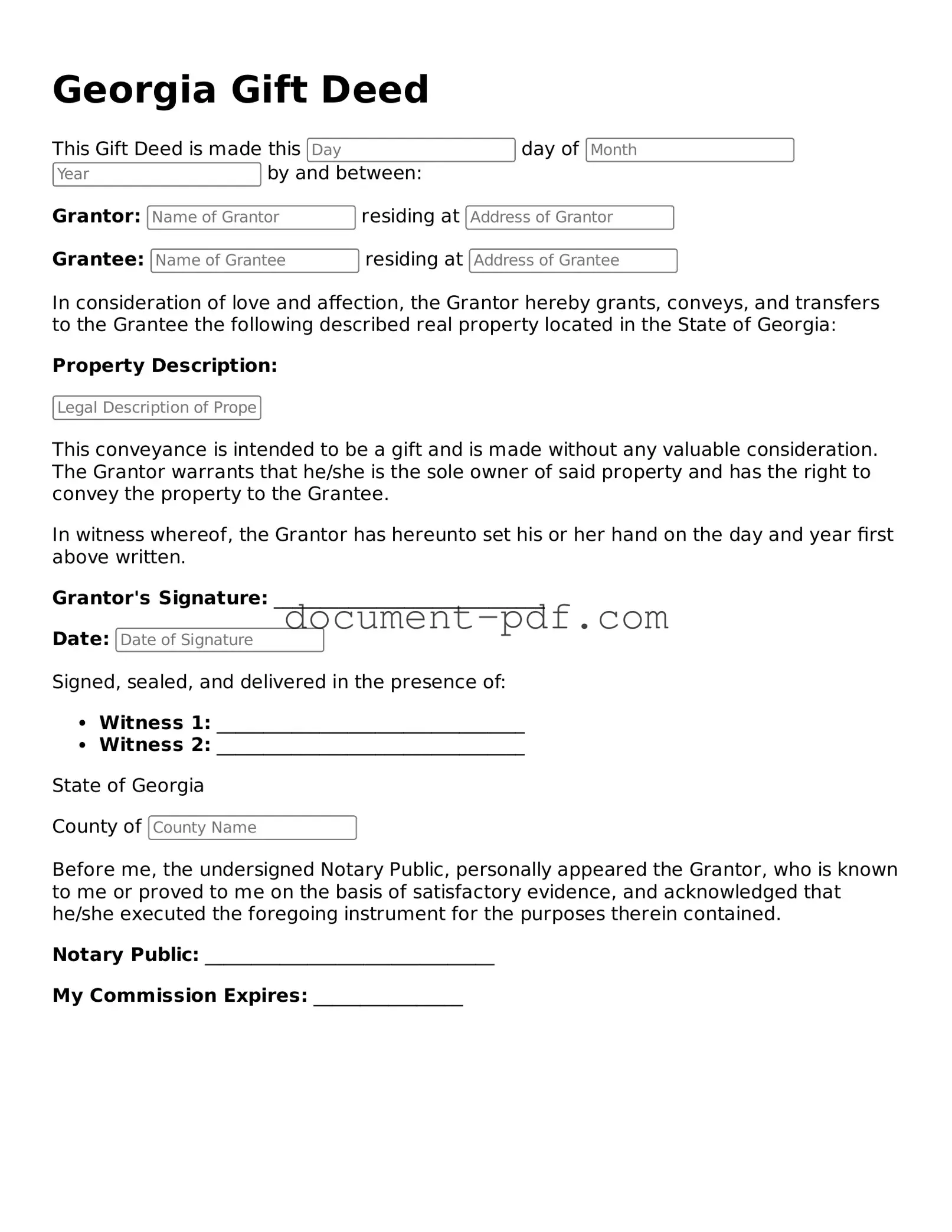Attorney-Verified Georgia Gift Deed Template
A Georgia Gift Deed form is a legal document used to transfer ownership of property from one person to another without any exchange of money. This form ensures that the transfer is recorded properly, providing clarity and legal protection for both the giver and the recipient. If you are ready to complete this process, fill out the form by clicking the button below.
Access Gift Deed Editor Here

Attorney-Verified Georgia Gift Deed Template
Access Gift Deed Editor Here
Finish the form without slowing down
Edit your Gift Deed online and download the finished file.
Access Gift Deed Editor Here
or
Click for PDF Form
